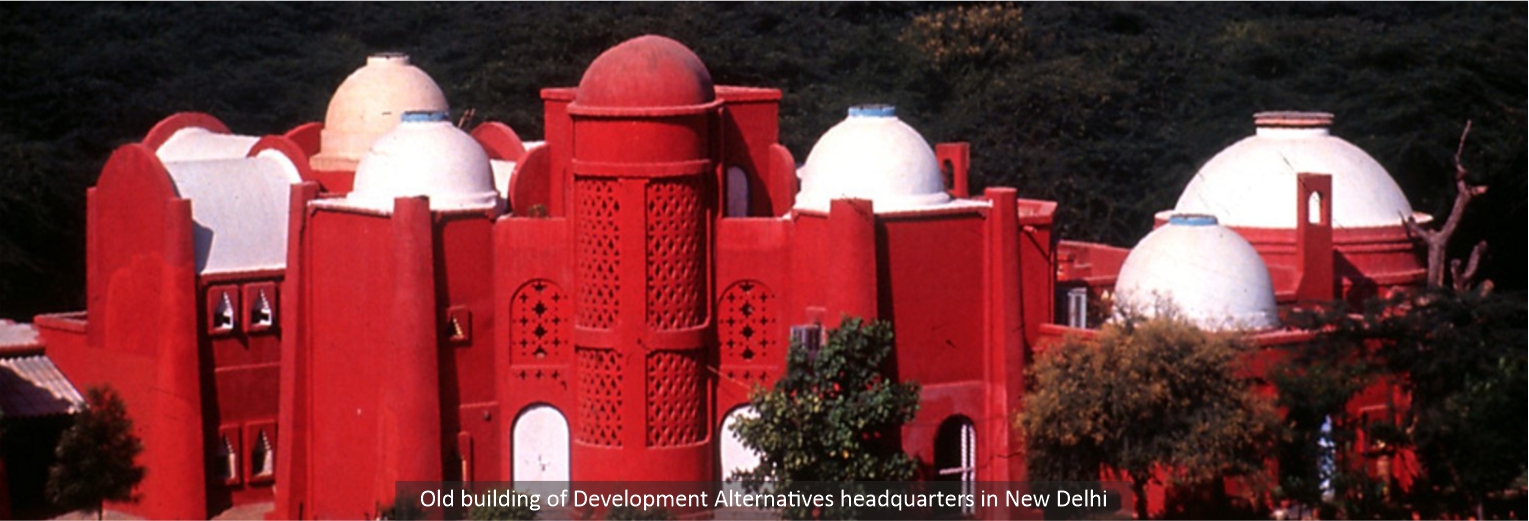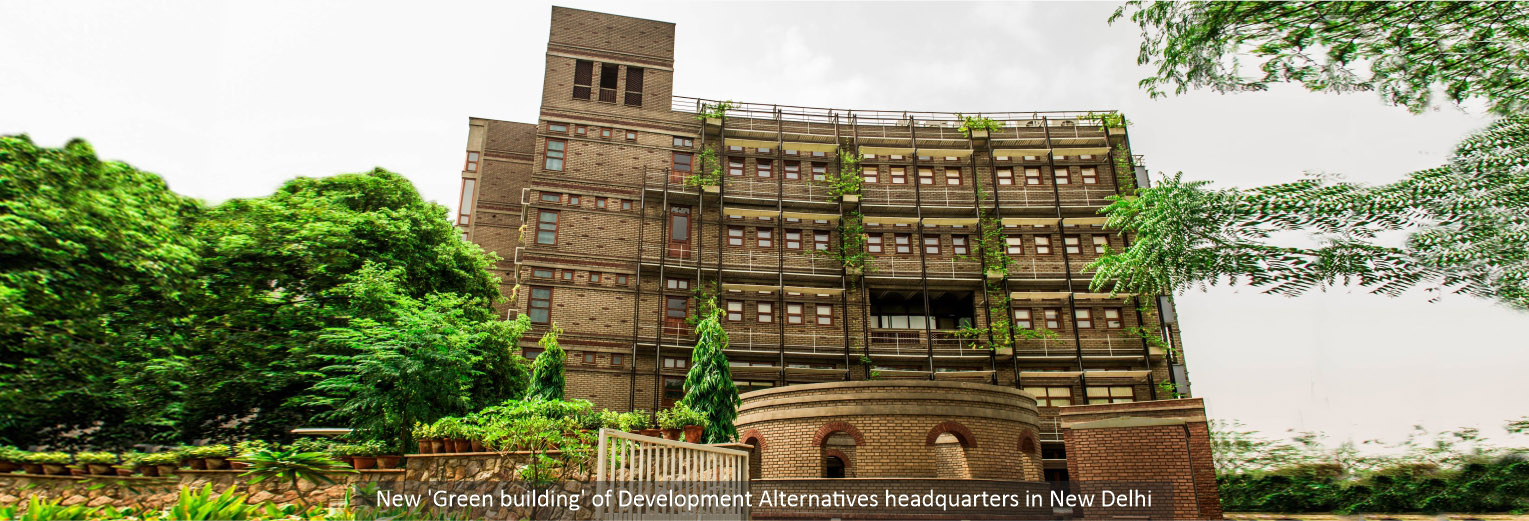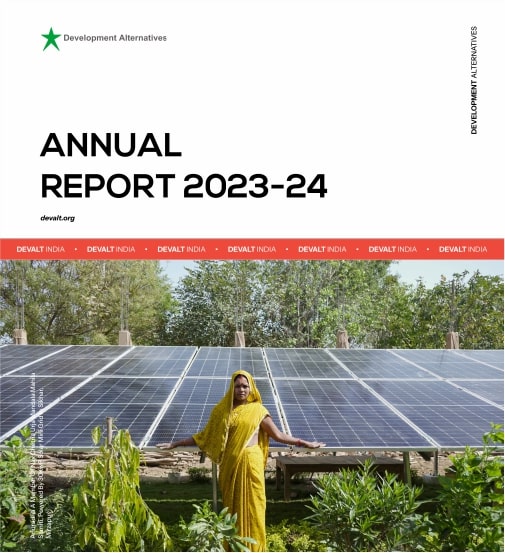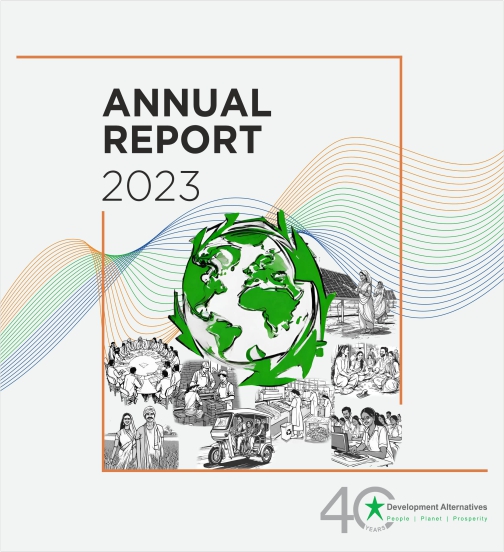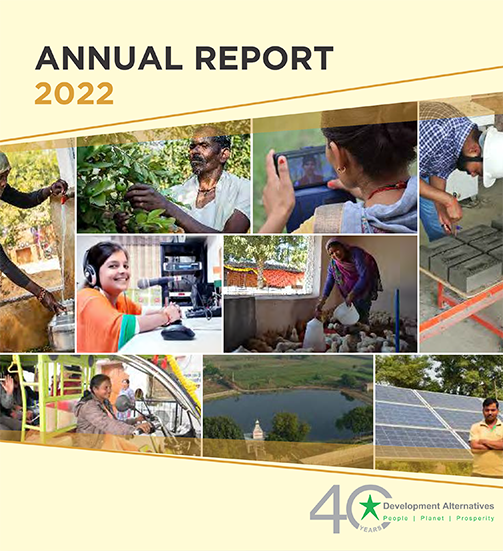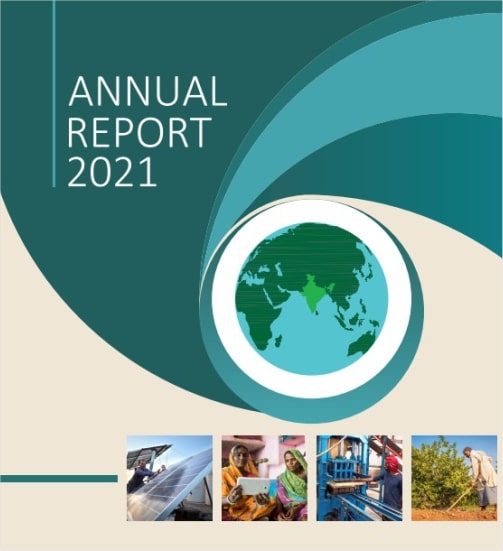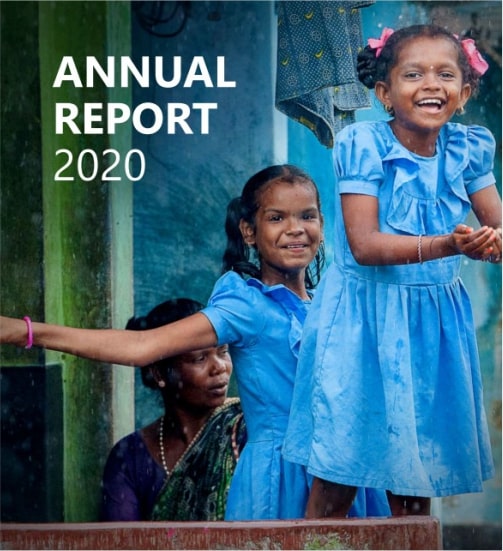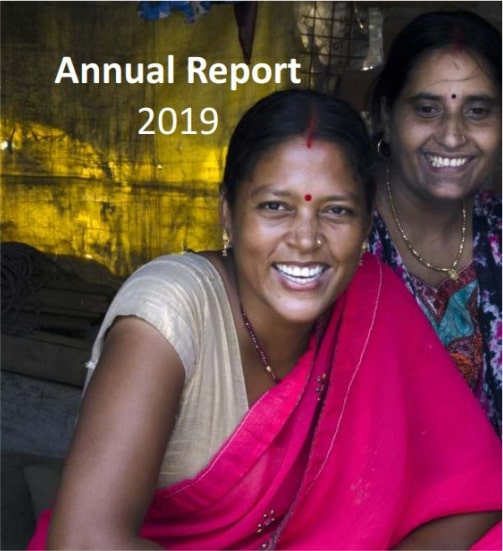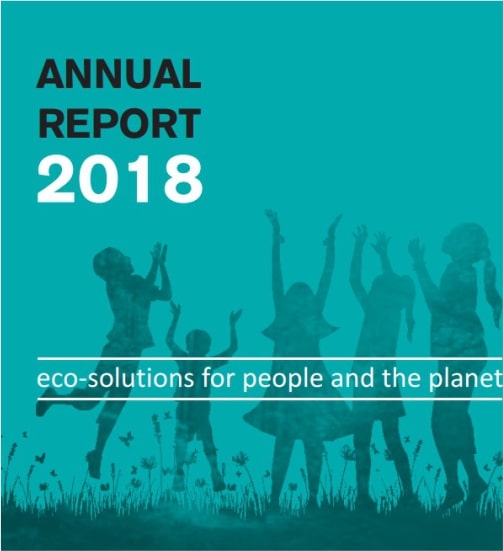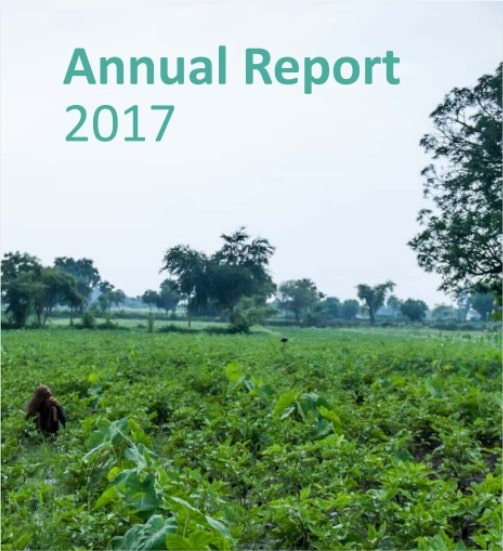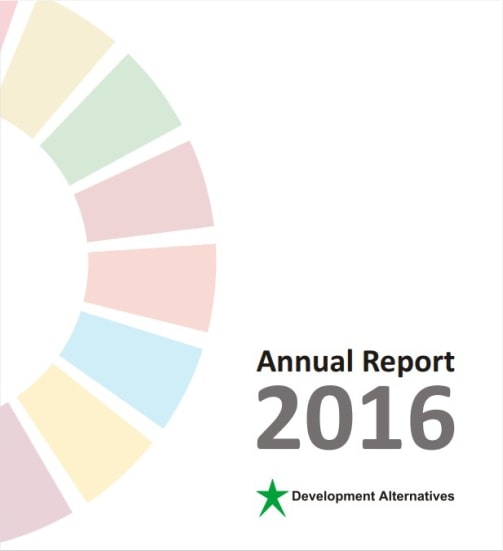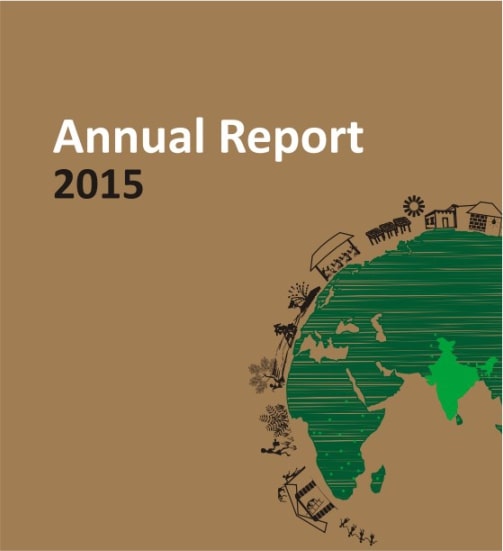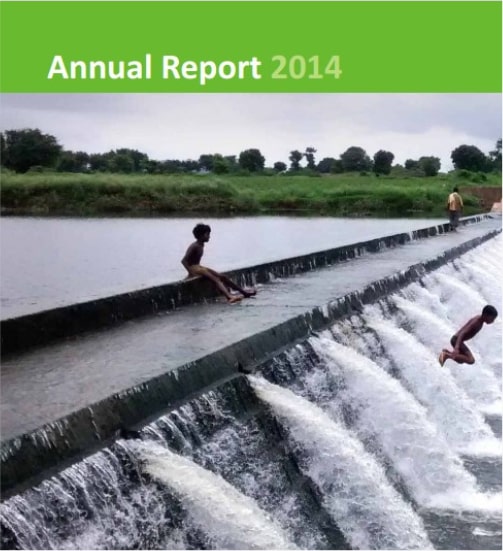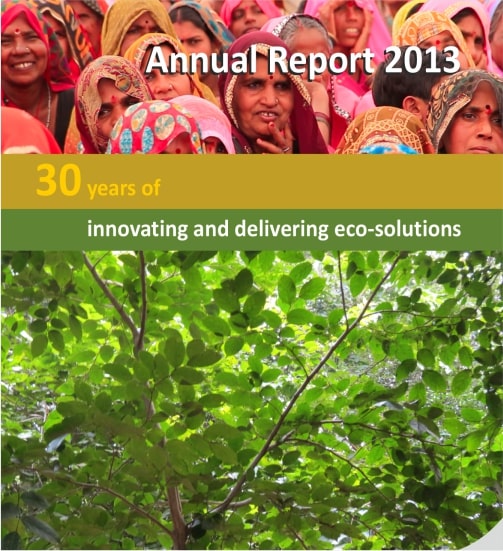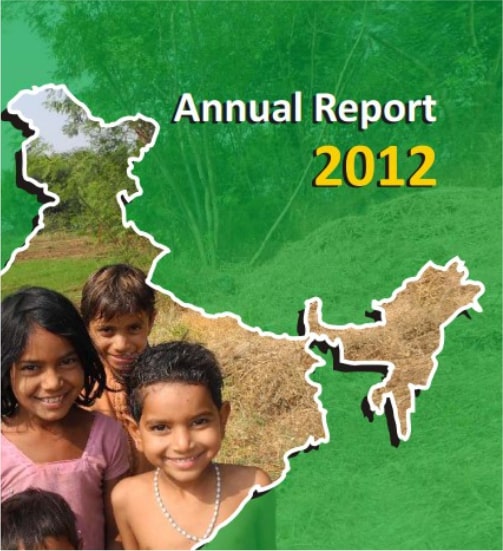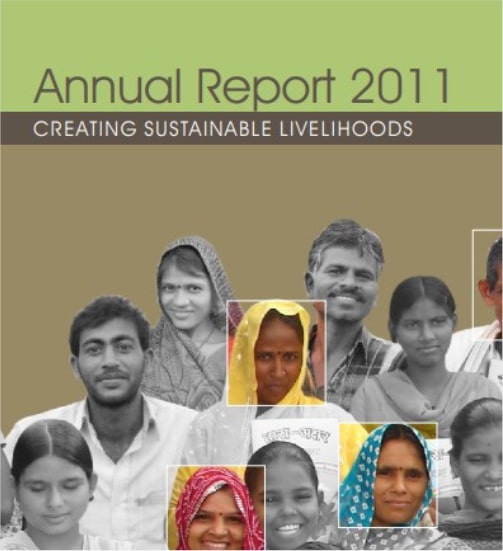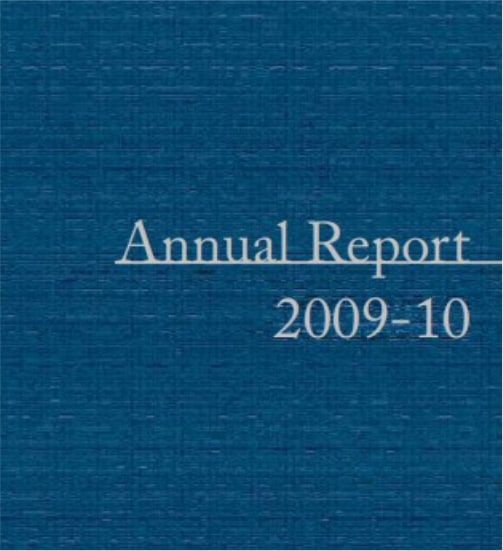-
1982
- Born
-
The Development Alternatives Group was the first social enterprise setup to create and deliver sustainable solutions for social and economic development.
Established in 1982, the Development Alternatives Group pioneered the concept of business-like approaches for eradicating poverty and conserving the natural resource base on which human development depends.

1984
- TARA Balram Mud Block Press launched
-
The TARA Balram Mudblock Press addresses the problem of families in India who cannot afford steel and cement for their houses. It compresses ordinary earth into solid building bricks that need no firing. Thus it saves the precious topsoil, needed for agriculture, and scarce forest resources, needed for human survival. TARA Balram can produce upto 600 blocks in one day if the mix is prepared manually. . Since the Balram is manual and highly labour intensive, the money generated through its use largely stays within the community.

1986
- Tara Chulha 101 launched
-
A clean, efficient and safe metal cook stove. TARA has introduced its range of fuel-efficient and smoke-reducing Chulhas for rural India.

1987
- First 100% Earth-based urban building - DA Headquarters
-
Earth is the oldest building material to be used by man. In the river side of the Mesopotamian, Nile, Chinese and the Indus Valley civilizations, settlers used readily available alluvial soil to make the first mud brick dwellings. Earth has always been the most widely used material for building in India and is a part of its culture. The design for the Development Alternatives headquarters arises out of an organisational desire to make a strong statement in earth architecture.

1989
- Tara loom enters market
-
TARA loom - the breakthrough innovation in the field of handloom technology.. It makes it possible for untrained men and women to produce high-quality handloom textiles that are commercially sustainable. Different types of yarns – cotton, wool, silk and synthetic - can be used in the machine.

-
1991
- Became founding member of Climate Action Network South Asia, TARA handmade paper launched
-
DA believes in the power of multi-stakeholders partnerships and networks for creating large-scale impact on society for sustainable development. In 1991 DA, with about 250 civil society organisations, formed a coalition, Climate Action Network South Asia (CANSA). CANSA works in 8 South Asian countries on climate action.

1991
- TARA handmade paper launched
-
The TARA handmade paper unit was launched in 1991 in the peri-urban area of Delhi. The key functions of paper manufacturing are performed by women. The women operators have been given on-the-job training. TARA has developed over 100 varieties of handmade paper using a wide choice of waste paper, rags, natural biomass mixtures, and agro-residues in these units.

1994
- Aqua check vial & jal-TARA water testing kit launched
-
The TARA Aqua Check vials are a reliable means to test the quality of drinking water. It can detect the presence of pathogenic bacteria in the water that causes common water-borne diseases like diarrhoea/dysentery/ gastroenteritis.
TARA Aqua Check vials are highly reliable and very simple to use. The salient feature of this kit is that it can test the water quality at the sourceand Point-of-Use.
Another landmark innovation to prevent waterborne diseases is the Jal-TARA water testing kit. It can be used by any person, even one without a scientific background. The kit can test 16 essential parameters to check if the water is fit for consumption.

1995
- TARAgram Livelihood Resource Center in Bundelkhand
-
TARAgram, is a unique concept; a livelihood resource centre demonstrating models of sustainable development, with facilities for training and conferencing. The TARAgram Livelihood Resource Centre is close to the beautiful and historic town of Orchha. It was set up in 1995 as a technology village by Development Alternatives.

1996
- CLEAN-India programme started on 2002
-
CLEAN-India (Community Led Environment Action Network) is an initiative of Development Alternatives that aims to harness youth power to bring about a positive change in urban society. It provides a platform for students and young professionals to prevent environmental degradation and develop cleaner towns and cities across India.Through this programme, 4000 students have been trained in environmental assessment and through improvement activities, more than 200 water quality monitoring stations established in India, and Water and Sanitation concerns were addressed in over 2200 schools.

1996
- DESI Power - India’s first biomass gasifier-based power plant set up
-
Decentralised Energy Systems India (DESI) power plant was set up at Orchha in 1996 in TARAgram. The technology of the gasification plant was developed by the Indian Institute of Science (IISc). In collaboration with Gram Panchayats and other agencies the DESI power, deliver and operate small power plants for rural communities using state-of-the-art integrated energy generation technologies.

1997
- 100 check dams in Bundelkhand
-
Development Alternatives with the active participation of local communities re-established the age-old water conservation system and constructed 100 check dams in the region in the year 1997.

1997
- Jai-TARA filter invented
-
Development Alternatives initiated the research and developed the water purification system ‘Jal-TARA Filter’ in the year 1997 to provide safe drinking water, free from bacterial contamination, at community and household levels. Unlike other water purification systems available in the market that are based on chemical treatment, the Jal-TARA filter is based on natural filtration, the slow sand filtration technique.. It is a modular unit that doesn’t require electricity or chemicals for operation.

1997
- TARA MCR Tech. inaugurated
-
The flagship Micro Concrete Roofing (MCR) technology of Development Alternatives Group was inaugurated in 1997. The TARA MCR Technology package consists of a TARA screed vibrator (electrically operated), TARA self-stacking plastic moulds, accessories, alignment tools and bending test equipment. The TARA MCR equipment is tailor-made to produce multiple forms of roofing tiles such as Roman pattern tiles, Pan tiles and ridge tiles. One set of equipment has the capacity to produce 300 tiles per day.

1998
- VSBK-TARA Ecokiln launched
-
TARA Eco-Kiln - Vertical Shaft Brick Kiln (VSBK), energy-efficient and environment-friendly technology for firing clay bricks, was launched in 1998. The technology reduces coal usage by 40-50 percent and allows small-scale entrepreneurs to earn carbon revenues by negotiating as a cluster.

-
2000
- Pawan-TARA air-monitoring Kit in market
-
Pawan-TARA is an easy-to-operate, compact, portable, air quality monitoring kit developed by Development Alternatives. It is a ‘low volume air sampler’. The kit can be used to monitor outdoor and indoor air quality. Pawan-TARA has been designed to be safe and simple to use even by school students. The kit can run on both electricity and batteries.

2001
- PACS-largest civil society support programme implemented
-
Poorest Areas Civil Society (PACS) programme focused on the building capacities of civil society organizations to enable rural communities from the most vulnerable and economically backward regions of India to access their constitutionally mandated rights and entitlements. The uniqueness of the PACS model was that it was not a service delivery program but was focused on community empowerment through women empowerment, local self-governance, and livelihood creation.

2002
- Building Materials & Services Bank, Odisha set up
-
The Building Materials and Services Bank ( BMSB ), a unique concept that integrates rural livelihoods with the delivery of rural housing and other habitat-related deliverables for overall habitat security. The primary stakeholders of this initiative are the rural unemployed.

2002
- TARA soil testing kit launched
-
TARA soil testing kit was launched in 2002. It is used for assessing the levels of impurities in soil. It can be customised as per lab requirements.

2002
- The United Nations Sasakawa Environment Prize
-
The Building Materials and Services Bank ( BMSB ), a unique concept that integrates rural livelihoods with the delivery of rural housing and other habitat-related deliverables for overall habitat security. The primary stakeholders of this initiative are the rural unemployed.

2005
- Dr Ashok Khosla became co-president of the Club of Rome
-
In 2007 Dr Ashok Khosla became co-president of the Club of Rome, a platform of diverse thought leaders who identify holistic solutions to complex global issues and promote policy initiatives and action to enable humanity to emerge from multiple planetary emergencies.

2005
- Fly Ash Brick Tech package created
-
TARA Fly Ash Brick Technology was introduced in the year 2005. Fly Ash brick is made up of fly ash - very finely ground coal in thermal power plants, sand and cement. The advantages of this technology are - low energy consumption, cost-effective and zero emissions.

2005
- TARA-BrickMek Tech
-
The TARA BrickMek has been designed to do homogeneous mixing of soil, and water. It is a versatile machine designed to produce consistent superior quality clay bricks with frogs. It operates under the soft mud moulding technology and produces bricks under soft extrusion. This machine is easy to operate with one skilled machine operator assisted by local manpower (men and women).

2005
- TARA Karigar Mandal launched
-
TARA Karigar Mandal (TKM) is an initiative of Development Alternatives to undertake eco-construction work at scale through local masons. The overall objective of this initiative is to improve the livelihoods of building artisans and efficient delivery of ‘green habitat services’ in Bundelkhand. TARAKarigar Mandal is at the forefront of green job creation and also acts as an important tool for climate change mitigation. The Mandal was formally launched at the International Habitat day on October 2, 2007.

2006
- SOE Atlas for india published
-
The State of Environment (SOE) Atlas of Indis has been developed jointly by the Ministry of Environment and Forests and Development Alternatives in 2006. It is an innovative interactive atlas. The thematic focus of this atlas is on the maps of green, blue and brown environmental issues.

2007
- New DA green headquarter
-
The Development Alternatives World Headquarters, located in New Delhi, was reconstructed in 2007, is one of the first buildings in India that aims at zero emissions. The building is best described as a living ecosystem - a fine balance of natural and manmade processes employing environment-friendly energy, material and water management methods. It is a living testimony to the vision, mission and commitment of Development Alternatives to creating a national future that is based on social justice and a cleaner environment.

2008
- Radio Bundelkhand established
-
Radio Bundelkhand 90.4 FM, the community radio is a flagship initiative of Development Alternatives, providing voice to the community in the Bundelkhand region in Central India.
Established on 23rd October 2008, Radio Bundelkhand is the first Community Radio Station in Madhya Pradesh and second in India. It’s participatory and collaborative approach empowers and builds consensus for change.
The radio station is situated in Development Alternatives Appropriate Technology Centre at TARAgram Orchha in Madhya Pradesh.

2010
- First TARAgram Yatra
-
The first TARAgram Yatra, an annual event organised by Development Alternatives and its partners to deliberate upon germane issues of sustainability, was organised in 2010. With a mix of dialogue and field visits, the Yatra provides a platform for exchanging cutting-edge ideas on how to realise a sustainable future.

2010
- Hamara Gaon - Integrated Village Development programme launched
-
Development Alternatives Integrated Village Development Programme – Hamara Gaon (an etymology that emphasises people’s right to decide their development pathway as informed and empowered communities).aunched in 2010, the programme targets issues related to the economy, environment and society systemically, as a whole, helping communities realise the benefit of integrated development.

2011
- Shubh Kal - climate communication action programme initiated
-
Shubh Kal is a campaign run by Development Alternatives to inform and educate the rural community of Bundelkhand regarding the risk of climate change and possible adaptation options. This communication model has helped to bridge the communication gap between communities, scientists and government officials.

2012
- 200 check dams built in Bundelkhand
-
In response to the chronic drought situation in Bundelkhand, Development Alternatives pioneered the establishment of check-dams as a low cost and sustainable technology for realising water security outcomes. With the active participation of local communities, DA constructed 200 check-dams since 1982.

2013
- First trialogue 2047
-
trialogue 2047 is a series of discussions organised by Development Alternatives, to explore how India can achieve its vision of becoming a green, inclusive and resilient nation by 2047, i.e. after 100 years as an independent nation. trialogue 2047 brings together distinguished speakers to address issues like poverty alleviation, participatory policymaking, resource efficiency etc. The first trialogue 2047 was held in 2013.

2014
- Started community-based water servics delivery in Bundelkhand
-
In 2014 Development Alternatives launched Locally Owned and Community Operated (LOCO) Model to address the issues of drinking water supply in rural India. ‘Locally Owned and Community Operated (LOCO)’ is an enterprise-based model solely managed by a committee led by women.

2015
- TARA Urja - mini-grids in UP and Bihar launched
-
Established in 2015, TARAurja is an operational business unit for the deployment and management of renewable energy-based mini-grids. It enables communities to adopt solar and biomass energy solutions in off-grid villages.

2016
- DA becomes india ountry Member of Green Economy Coalition
-
In 2016 Development Alternatives became India country member of the Green Economy Coalition, the world's largest movement for green and fair economies.

2017
- IMEDF became nodal agency for the Ministry of MSME's SFURTI scheme
-
Indian Micro Enterprises Development Foundation (IMEDF) is the social enterprise development vehicle of the Development Alternatives Group. It was registered as a nodal agency of the Ministry of MSME, Government of India for the development of clusters under the Scheme of Fund for Regeneration of Traditional Industries (SFURTI) on 24 October 2017.

2018
- Mou with One UN for partnership in UN programmes in india
-
On 18 December 2018, Development Alternatives signed an MoU with United Nations India to enhance work towards achieving the SDGs with a special focus on the environment and climate change. Dr Ashok Khosla, Chairman, DA and Mr Yuri Afanasiev, United Nations Resident Coordinator signed the MoU at the UNDP office, Delhi.

2019
- Bridge2Naukri, youth employment portal inaugurated
-
Development Alternatives flagship programme Bridge2Naukri was inaugurated in 2019. The platform aims to facilitate employment and apprenticeship opportunities for youth.

2019
- UdyaME enterprise information network started
-
UdyaME is the Digital Platform of Indian Micro Enterprises Development Foundation (IMEDF). The platform is a one-stop solution for micro-entrepreneurs in rural and semi-urban geographies.

2021
- 2,50,000 women became literate through TARA Akshar
-
The TARA Akshar, the flagship programme of the Society for Development Alternatives, is an ICT-based programme imparting literacy and numeracy to adult illiterate women in India in a span of 56 days. The programme has been able to make 2,50,000 women literate in 1922 villages across eight Indian states.

2021
- First trial of LC3 in west Rajasthan
-
First trial of Limestone Calcined Clay Cement (LC3) was held in West Rajasthan in 2021. The LC3 technology promises sustainable growth of economies around the world by reducing CO2 emissions by more than 30% compared to plain Portland cement at lower production costs.

2021
- SAM-Udyam launched at Livelihoods india Summit 2021
-
SAM-UDYAM, a national-level collaborative-cum-laboratory was unveiled by Development\ Alternatives along with its partners including Action Aid, on 30th January 2021 at the ACCESS Livelihoods India Summit.

2022
- MoU with JK Cement to decarbonize cement production
-
Development Alternatives Group signed a long term MoU with JK Lakshmi Cement Ltd. to decarbonise the cement industry through the production of Limestone Calcined Clay Cement (LC3) and other climate-friendly technologies.

2023
- Comming Soon!
-
Comming soon!
2024
- MoU with Promac
-
The Society for Technology & Action for Rural Advancement (TARA), a social enterprise of the Development Alternatives Group, signed a Memorandum of Understanding (MoU) with Promac Engineering to create LC3 Green Cement. This initiative aims to promote low-carbon emissions and contribute to a greener environment.
2024
- MoU with ICIMOD
-
Development Alternatives (DA) signed an MoU with ICIMOD to promote sustainable climate practices.
2024
- MoU with InnoCSR
-
TARA, a social enterprise of the Development Alternatives Group, signed an MoU with InnoCSR to collaborate on research and the promotion of low-carbon Nano Joule Bricks.
2024
- MoU with Goa Institute of Management
-
The Goa Institute of Management and Development Alternatives formalized their association by entering into a three-year MoU focused on strategic knowledge sharing and their shared commitment to sustainability.
2024
- TARAgram Yatra 11th Edition
-
The 11th edition of the TARAgram Yatra was successfully held from 13-15 December 2024 in Orchha, Madhya Pradesh.
2024
- MoU with Great Lakes Institute of Management
-
On 24 December 2024, Development Alternatives signed a Memorandum of Understanding with Great Lakes Institute of Management, Gurugram. This marks a transformative step toward embedding sustainability, climate resilience, and the Sustainable Development Goals (SDGs) at the core of Indian businesses.
2024
- MoU with UPSRLM
-
Development Alternatives (DA) and the Uttar Pradesh State Rural Livelihood Mission (UPSRLM) formalised their collaboration through the signing of a Memorandum of Understanding (MoU). This partnership, signed by Ms Deepa Ranjan, IAS, Mission Director, UPSRLM, and Mr Shrashtant Patara, CEO, DA, aims to enable 100,000 women in Uttar Pradesh to transition from job seekers to job creators.
GOVERNING COUNCIL
The Governing Council is primarily responsible for an overall policy formulation and ensuring statutory compliance. They bring to the organisation systems thinking, institutional development, planning and management, legal and financial, gender and social issues, natural resources and environment, social enterprise and business expertise and experience.
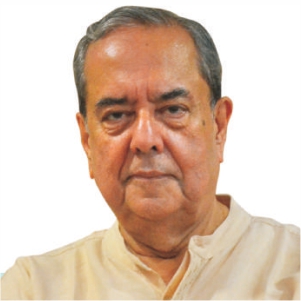
Dr. Ashok Khosla
Chairman
For nearly five decades, Dr Ashok Khosla has been a pioneer in finding paths for development whose benefits reach everyone and can be sustained by the Earth’s resources. He has been Co-Chair of the UN’s International Resource Panel, President of the International Union for Conservation of Nature (IUCN), and President of the Club of Rome. He was a member of the Government of India’s National Security Advisory Board and Scientific Advisory Council to the Cabinet. For his contribution, he was awarded the OBE by the UK Government, the UN Sasakawa Environment Prize, and the Zayed International Environment Prize, among others.
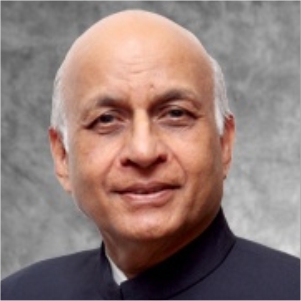
Lalit Mansingh
Member
A former Indian Diplomat, Mansingh has more than 40 years of extensive international experience across Europe, Africa, Asia, and the Middle East. He is also a former foreign secretary. He has served as the Indian Ambassador to the United States and the United Arab Emirates and as India’s high commissioner to the United Kingdom and Nigeria. Mansingh has dedicated his career to promoting India and its role in the global marketplace. He is also the chairman of Kalinga International Foundation, a national think tank focusing on India’s relations with Indo-Pacific.
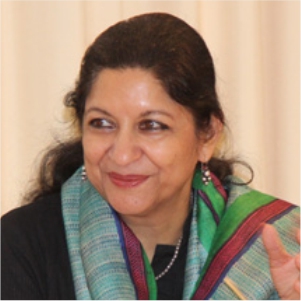
Ravinder Kaur
Member
She serves as a Professor of Sociology and Social Anthropology in the Department of Humanities and Social Sciences, Indian Institute of Technology, Delhi. Her core specialisation includes Sociological Theory (Classical and Contemporary), Sociology of Gender, Development, Urban Social Systems, Technology and Society, Kinship, Family, and Marriage studies. She has also worked as a consultant for various national and international organisations such as the World Bank, UNDP, and UNFPA.
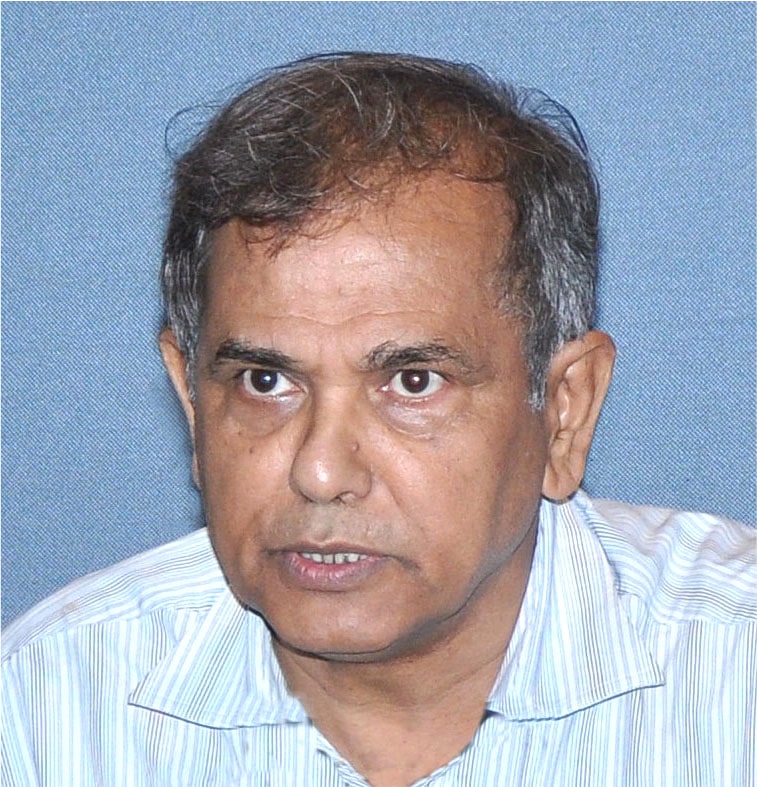
Amitabh Kundu
Member
Distinguished Fellow at Research and Information System for Developing Countries, he chairs the Standing Committee for the National Survey for the Swatch Bharat Mission at the Ministry of Drinking Water and Sanitation. He has chaired Committees on Housing Start up Index at RBI and Committee to Estimate Shortage of Affordable Housing, and Post Sachar Evaluation Committee, Govt of India. He has been Regional Advisor on Poverty at the UN, Professor and Dean at the Jawaharlal Nehru University, and a member of National Statistical Commission, Govt of India. He was the Director at the National Institute of Urban Affairs, Indian Council of Social Science Research, and Gujarat Institute of Development Research.
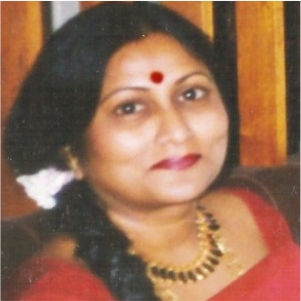
Gita Siddhartha
Member
As President and Secretary General of the Indian Council for Child Welfare for nearly 30 years, she has implemented programmes that cover a gamut of concerns in every state of India. She has overseen and promoted programmes covering street and working children, child labour, children of sex workers, malnutrition, among others. She has played a pivotal role in advocating for the rights of children and articulated plans for their welfare and development.
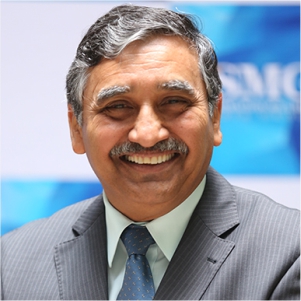
Arun Kumar Sahni
Member
A second generation and decorated soldier, he was superannuated as Commander in Chief of an Army Command on India’s Western borders. He was a recipient of the Sword of Honour and President’s Gold Medal on commissioning, for standing first in order of merit. Over a career spanning 40 years, he has served in most of the active and challenging operational environments in India and abroad. Presently ‘pro bono’, he is mentoring startups in the domain of cyber, robotics, and AI and steers an environmental policy group, COR – India. He is a Distinguished Fellow with two premier ‘think tanks’ in Delhi, the USI and CLAWS and on the Board of Governors of the prestigious ‘India Foundation’.
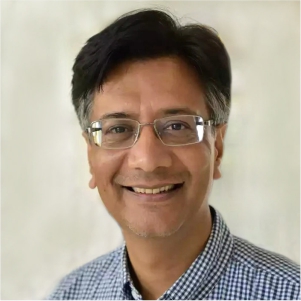
Shrashtant Patara
Member
Shrashtant Patara is an architect by training. He has been with the Development Alternatives Group since 1988, providing research expertise, management capability, and strategic direction to teams working in the areas of Entrepreneurship Support Systems, Habitat, Renewable Energy and Waste-to-Wealth initiatives. His current work is focussed on systems change, social innovation, and entrepreneurship, resulting in the co-creation of multi-stakeholder-based service delivery models that promote sustainability through local economic development, regeneration of the environment, and greater social equity. Patara is a Fellow of The Rockefeller Foundation’s Global Programme on Social Innovation and has completed a programme on Leadership for System Change conducted by Harvard Kennedy School in conjunction with the Schwab Foundation. He has been instrumental in the establishment of several social businesses within the Development Alternatives Group and currently leads the team that is incubating ‘TARAurja’, a renewable energy-based micro-utility business and the Indian Micro Enterprises Development Foundation.
Our Team
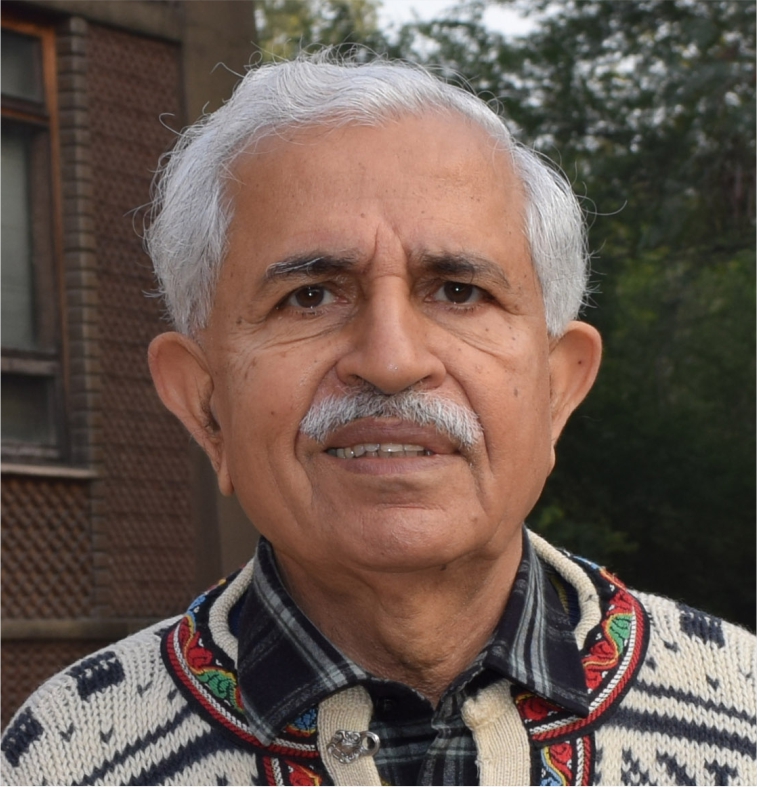
Dr. Arun Kumar
President Emeritus & Mentor-in-Chief, Development Alternatives Group
Dr Arun Kumar is the President Emeritus, Mentor-in-Chief of Development Alternatives Group and has extensive experience in the areas of technology design, system engineering, business development and research. He has worked in the areas of renewable energy technology design and development, systems engineering and business development and general management. Since 1989, Dr Kumar has been involved in the development and liberation of sustainable technology packages in the areas of low-cost construction, decentralised energy production, clean and green technologies, biomass utilisation, paper recycling and other livelihoods technologies. Under his leadership, the first DESI Power Biomass based Energy System was installed and commissioned at TARAgram, Orchha in 1996. The unit meets the entire electricity requirements of the Appropriate Technology Centre of Development Alternatives. Dr. Arun Kumar has been actively involved in planning for large-scale dissemination of cleaner technologies required under the International Protocols. The TARA Eco Kiln technology, promoted in India, is one of the first bundled CDM registered projects making available Carbon Revenues to small scale businesses. During the course of research work on Structural Transformation Processes, he has authored a pioneering study on Downward Spiralling of resources – their impact on Livelihood Systems. He has authored numerous publications on technology promotion and benchmarking. His team’s research focus is to understand issues related to technology assessment, technology development and processes that accelerate acceptance of emerging energy technologies. A study, Exploring Green Business Solutions from Developing Countries has been published by the International Trade Centre (UNCTAD and WTO) in November 2008.He represents the Development Alternatives Group on several national committees of CII, Department of Science and Technology and Ministries. His group is engaged in designing products and marketing systems for large scale delivery in rural markets. In this endeavor, the Development Alternatives Group has successfully collaborated with large corporations and is planning to expand these initiatives. A pioneering initiative Network of Waste to Wealth Building Material SMEs has been launched for achieving scale; TARA Machines and Tech Services Private Limited. With investments by Grassroots Business Fund and a leading social venture investor; the company is poised for growth in national and international markets utilising a technology portfolio developed under his leadership.
View DetailDr Arun Kumar is the President Emeritus, Mentor-in-Chief of Development Alternatives Group and has extensive experience in the areas of technology design, system engineering, business development and research. He has worked in the areas of renewable energy technology design and development, systems engineering and business development and general management. Since 1989, Dr Kumar has been involved in the development and liberation of sustainable technology packages in the areas of low-cost construction, decentralised energy production, clean and green technologies, biomass utilisation, paper recycling and other livelihoods technologies. Under his leadership, the first DESI Power Biomass based Energy System was installed and commissioned at TARAgram, Orchha in 1996. The unit meets the entire electricity requirements of the Appropriate Technology Centre of Development Alternatives. Dr. Arun Kumar has been actively involved in planning for large-scale dissemination of cleaner technologies required under the International Protocols. The TARA Eco Kiln technology, promoted in India, is one of the first bundled CDM registered projects making available Carbon Revenues to small scale businesses. During the course of research work on Structural Transformation Processes, he has authored a pioneering study on Downward Spiralling of resources – their impact on Livelihood Systems. He has authored numerous publications on technology promotion and benchmarking. His team’s research focus is to understand issues related to technology assessment, technology development and processes that accelerate acceptance of emerging energy technologies. A study, Exploring Green Business Solutions from Developing Countries has been published by the International Trade Centre (UNCTAD and WTO) in November 2008.He represents the Development Alternatives Group on several national committees of CII, Department of Science and Technology and Ministries. His group is engaged in designing products and marketing systems for large scale delivery in rural markets. In this endeavor, the Development Alternatives Group has successfully collaborated with large corporations and is planning to expand these initiatives. A pioneering initiative Network of Waste to Wealth Building Material SMEs has been launched for achieving scale; TARA Machines and Tech Services Private Limited. With investments by Grassroots Business Fund and a leading social venture investor; the company is poised for growth in national and international markets utilising a technology portfolio developed under his leadership.
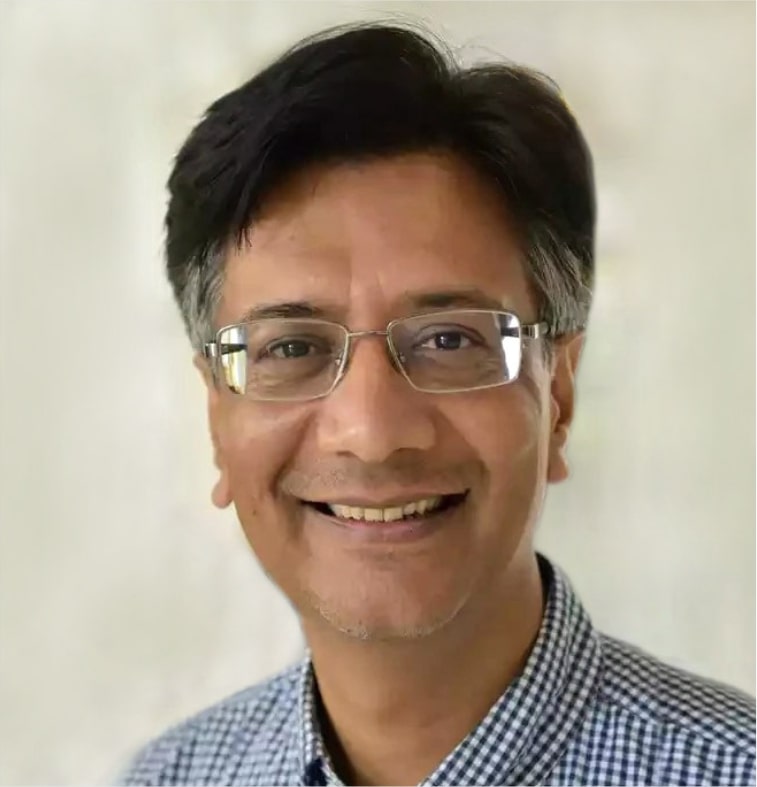
Shrashtant Patara
Chief Executive Officer, Development Alternatives & Executive Vice President, Development Alternatives Group
Shrashtant Patara is an architect by training. He has been with the Development Alternatives Group since 1988, providing research expertise, management capability, and strategic direction to teams working in the areas of Entrepreneurship Support Systems, Habitat, Renewable Energy and Waste-to-Wealth initiatives. His current work is focussed on systems change, social innovation, and entrepreneurship, resulting in the co-creation of multi-stakeholder-based service delivery models that promote sustainability through local economic development, regeneration of the environment, and greater social equity. Patara is a Fellow of The Rockefeller Foundation’s Global Programme on Social Innovation and has completed a programme on Leadership for System Change conducted by Harvard Kennedy School in conjunction with the Schwab Foundation. He has been instrumental in the establishment of several social businesses within the Development Alternatives Group and currently leads the team that is incubating ‘TARAurja’, a renewable energy-based micro-utility business and the Indian Micro Enterprises Development Foundation.
View DetailShrashtant Patara is an architect by training. He has been with the Development Alternatives Group since 1988, providing research expertise, management capability, and strategic direction to teams working in the areas of Entrepreneurship Support Systems, Habitat, Renewable Energy and Waste-to-Wealth initiatives. His current work is focussed on systems change, social innovation, and entrepreneurship, resulting in the co-creation of multi-stakeholder-based service delivery models that promote sustainability through local economic development, regeneration of the environment, and greater social equity. Patara is a Fellow of The Rockefeller Foundation’s Global Programme on Social Innovation and has completed a programme on Leadership for System Change conducted by Harvard Kennedy School in conjunction with the Schwab Foundation. He has been instrumental in the establishment of several social businesses within the Development Alternatives Group and currently leads the team that is incubating ‘TARAurja’, a renewable energy-based micro-utility business and the Indian Micro Enterprises Development Foundation.
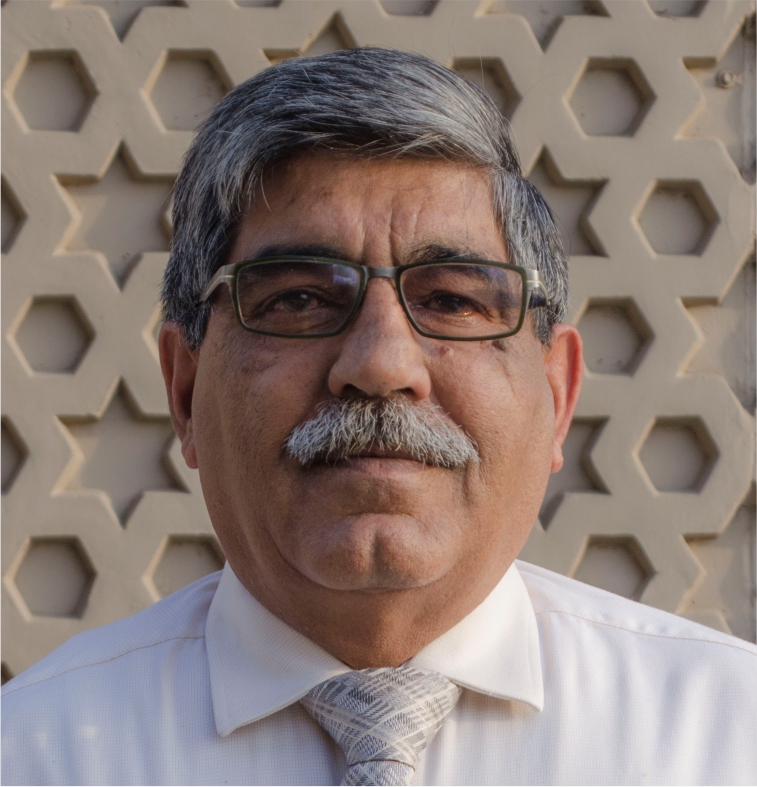
Maj Gen Rahul Bhardwaj
Chief Operating Officer, TARA & Associate Vice President, Development Alternatives Group
Maj Gen Rahul Bharadwaj is the Chief Operating Officer of TARA and Associate Vice President Development Alternatives Group. With the background in a highly competitive military environment he has proven leadership and organisational skill in resource and man-power management. His expertise lies in deligent execution of plans, strategic allocation of resources and keeping his team motivated for successful delivery of projects. He specialises in innovating strategies to improve efficiency and optimal utilisation of resources.He is an enigmatic personality whose positive attitude brightens up the room.
View DetailMaj Gen Rahul Bharadwaj is the Chief Operating Officer of TARA and Associate Vice President Development Alternatives Group. With the background in a highly competitive military environment he has proven leadership and organisational skill in resource and man-power management. His expertise lies in deligent execution of plans, strategic allocation of resources and keeping his team motivated for successful delivery of projects. He specialises in innovating strategies to improve efficiency and optimal utilisation of resources.He is an enigmatic personality whose positive attitude brightens up the room.
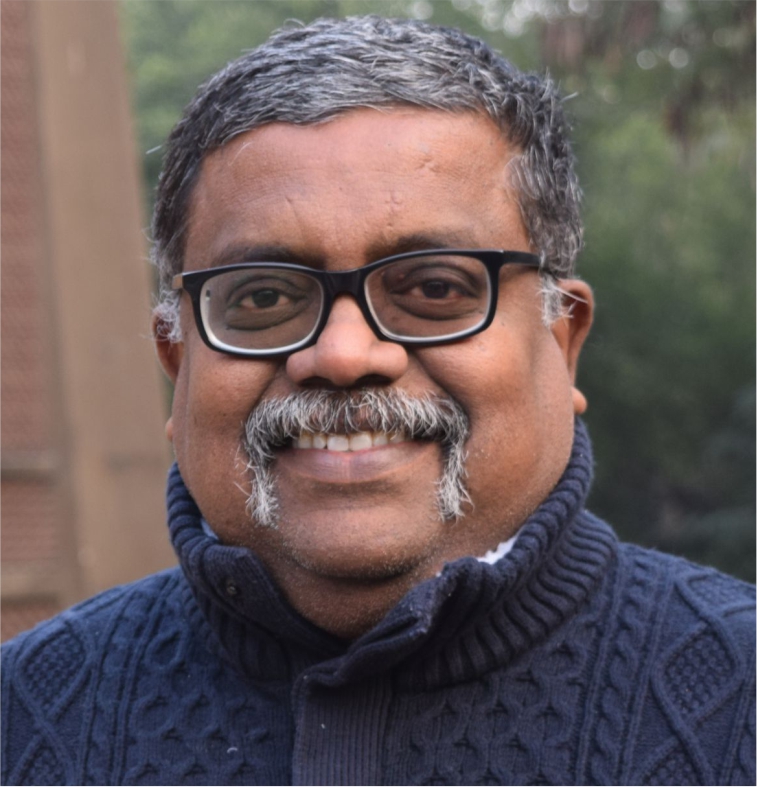
Dr. Soumen Maity
Chief Technology Officer, TARA & Vice President, Development Alternatives Group
Dr. Soumen Maity is the Chief Technology Officer, Technology and Action for Rural Advancement (TARA) & Vice President at Development Alternatives. He is a Material Scientist by profession and currently leads the Technology Management business at TARA. Soumen has been with TARA for over a decade anchoring the interface between innovation and business. On one hand he guides and mentors the Clean Technology systems at the Development Alternatives Group, and on the other, he leads the incubation of developed technologies at TARA. His expertise lies in the building material sector wherein he has been instrumental in exploring commercial approaches to utilisation of industrial waste, improving energy efficiency and reducing environmental emissions. He was instrumental in shaping the Vertical Shaft Brick Kiln (VSBK) programme (technical) from a firing technology to an entire brick production system encompassing soil selection, testing and suitability for use in VSBK technology. Science of soil behaviour in short cycle firing (VSBK) and engineering of green brick mixes for optimum quality in VSBK. He undertook feasibility studies for introduction of cleaner brick production practices in Nepal, Afghanistan, Vietnam, Indonesia and Bangladesh. At present he is advising the Government of Bangladesh and introducing cleaner brick production practices and technologies for improvement of environment quality throughout Bangladesh. He has developed local expertise and networking capabilities for technology anchoring and dissemination.
View DetailDr. Soumen Maity is the Chief Technology Officer, Technology and Action for Rural Advancement (TARA) & Vice President at Development Alternatives. He is a Material Scientist by profession and currently leads the Technology Management business at TARA. Soumen has been with TARA for over a decade anchoring the interface between innovation and business. On one hand he guides and mentors the Clean Technology systems at the Development Alternatives Group, and on the other, he leads the incubation of developed technologies at TARA. His expertise lies in the building material sector wherein he has been instrumental in exploring commercial approaches to utilisation of industrial waste, improving energy efficiency and reducing environmental emissions. He was instrumental in shaping the Vertical Shaft Brick Kiln (VSBK) programme (technical) from a firing technology to an entire brick production system encompassing soil selection, testing and suitability for use in VSBK technology. Science of soil behaviour in short cycle firing (VSBK) and engineering of green brick mixes for optimum quality in VSBK. He undertook feasibility studies for introduction of cleaner brick production practices in Nepal, Afghanistan, Vietnam, Indonesia and Bangladesh. At present he is advising the Government of Bangladesh and introducing cleaner brick production practices and technologies for improvement of environment quality throughout Bangladesh. He has developed local expertise and networking capabilities for technology anchoring and dissemination.
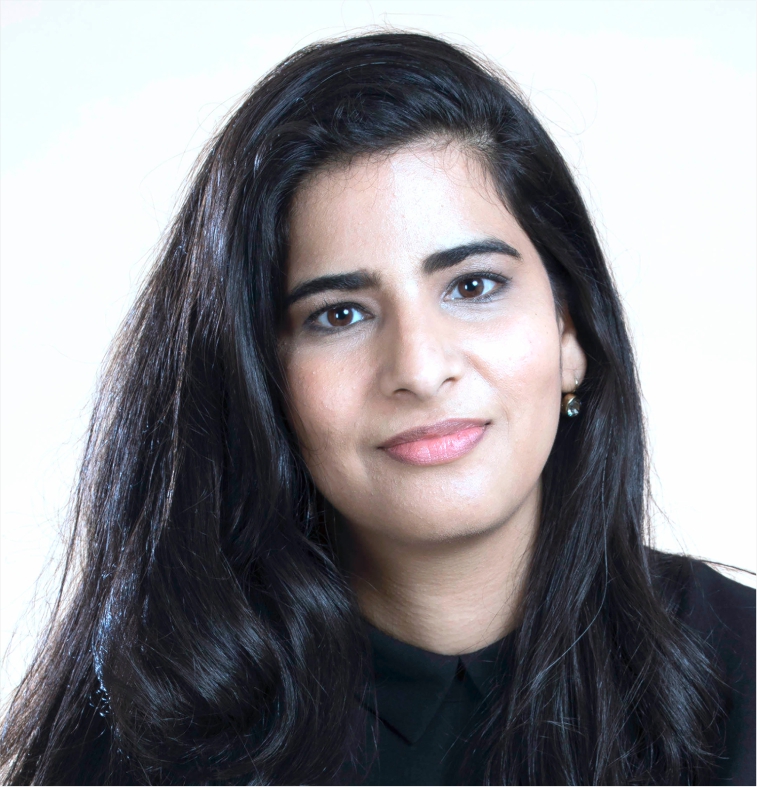
Kanika Verma
Lead–Sustainable Enterprises and Associate Vice President, Development Alternatives Group
Kanika Verma leads the Sustainable Enterprise Domain of the Development Alternatives Group. She is also currently pursuing an M.Phil. with a specialisation in inclusive innovation at the University of Cape Town. As Associate Vice President, she provides strategic guidance, substantive expertise and management support to teams engaged in projects related to the development of delivery models for basic needs products, provision of support services to micro and small enterprises and initiatives to strengthen aggregation driven value chains. A major segment of her work is on enhancing livelihood security for women in underserved areas of India. Her current areas of focus include piloting a social innovation platform (action and learning) to boost job growth for women and youth in India with support from “la Caixa” Banking foundation; co-leading the Asia Hub of Systems Play on fostering collaboration, experimentation, and learning with system innovators; scaling up micro-enterprise development in villages being provided electricity through solar micro-grids supported by Rockefeller Foundation; and developing clusters for traditional industries to make them profitable and productive through a mandate given by Ministry of Micro, Small and Medium Enterprise, Government of India’s flagship program - SFURTI. She led a financial investment firm in the U.S.A. for seven years prior to joining Development Alternatives Group in 2011 to pursue her ambition of being a social entrepreneur.
View DetailKanika Verma leads the Sustainable Enterprise Domain of the Development Alternatives Group. She is also currently pursuing an M.Phil. with a specialisation in inclusive innovation at the University of Cape Town. As Associate Vice President, she provides strategic guidance, substantive expertise and management support to teams engaged in projects related to the development of delivery models for basic needs products, provision of support services to micro and small enterprises and initiatives to strengthen aggregation driven value chains. A major segment of her work is on enhancing livelihood security for women in underserved areas of India. Her current areas of focus include piloting a social innovation platform (action and learning) to boost job growth for women and youth in India with support from “la Caixa” Banking foundation; co-leading the Asia Hub of Systems Play on fostering collaboration, experimentation, and learning with system innovators; scaling up micro-enterprise development in villages being provided electricity through solar micro-grids supported by Rockefeller Foundation; and developing clusters for traditional industries to make them profitable and productive through a mandate given by Ministry of Micro, Small and Medium Enterprise, Government of India’s flagship program - SFURTI. She led a financial investment firm in the U.S.A. for seven years prior to joining Development Alternatives Group in 2011 to pursue her ambition of being a social entrepreneur.
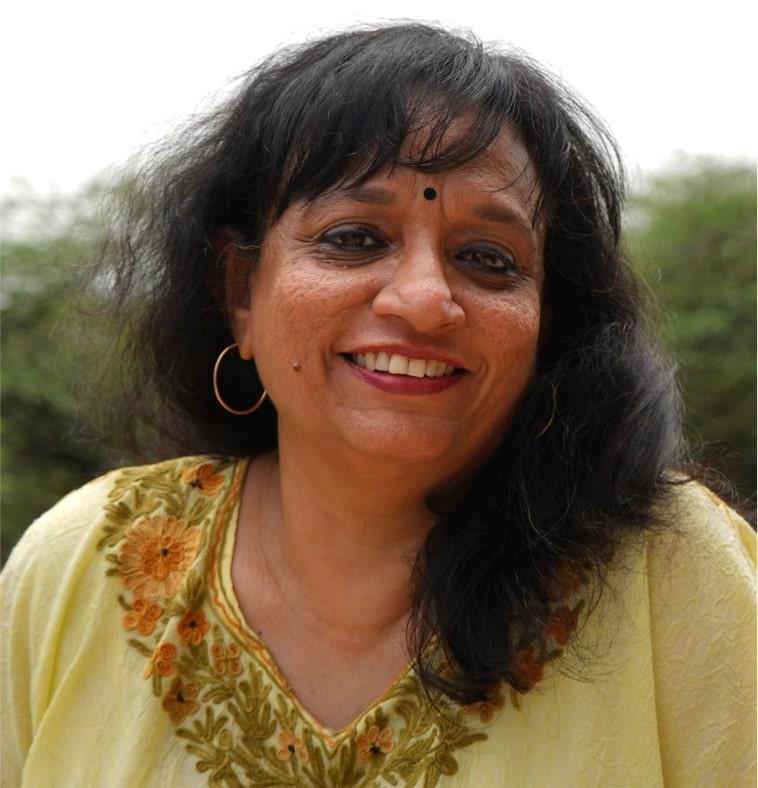
Shaila Sam
Head of Impact and Communication & Associate Vice President, Development Alternatives Group
Shaila Sam is a seasoned corporate communication professional with over 20 years of experience across development sector, start-ups, the conservation sector, and government agencies. She has played pivotal roles such as Director of Communications at Reach to Teach, Communications Specialist at the United Nations Environment Programme (UNEP), and Senior Manager at WWF India. Shaila’s niche expertise spans strategic communication, content management, crisis communication, and media relations. She has successfully launched large-scale social campaigns in India and developed content strategies that enhance organisational storytelling and brand identity. In her current role as Head of Impact and Communications at Development Alternatives (DA), Shaila is dedicated to positioning DA as a renowned think tank. She aims to broaden DA's engagement with diverse stakeholders, including corporates, large institutions, universities, and philanthropies. Shaila has crafted a dynamic social media narrative that not only highlights DA’s impactful work but also emphasises its innovative and inclusive workplace culture. By focusing on narrative on social innovations that benefit people, planet, and prosperity, she is driving DA’s mission forward and ensuring its recognition as a leader in sustainable development. Her strategic initiatives are transforming DA’s public image and expanding its influence in the global arena.
View DetailShaila Sam is a seasoned corporate communication professional with over 20 years of experience across development sector, start-ups, the conservation sector, and government agencies. She has played pivotal roles such as Director of Communications at Reach to Teach, Communications Specialist at the United Nations Environment Programme (UNEP), and Senior Manager at WWF India. Shaila’s niche expertise spans strategic communication, content management, crisis communication, and media relations. She has successfully launched large-scale social campaigns in India and developed content strategies that enhance organisational storytelling and brand identity.
In her current role as Head of Impact and Communications at Development Alternatives (DA), Shaila is dedicated to positioning DA as a renowned think tank. She aims to broaden DA's engagement with diverse stakeholders, including corporates, large institutions, universities, and philanthropies. Shaila has crafted a dynamic social media narrative that not only highlights DA’s impactful work but also emphasises its innovative and inclusive workplace culture. By focusing on narrative on social innovations that benefit people, planet, and prosperity, she is driving DA’s mission forward and ensuring its recognition as a leader in sustainable development. Her strategic initiatives are transforming DA’s public image and expanding its influence in the global arena.
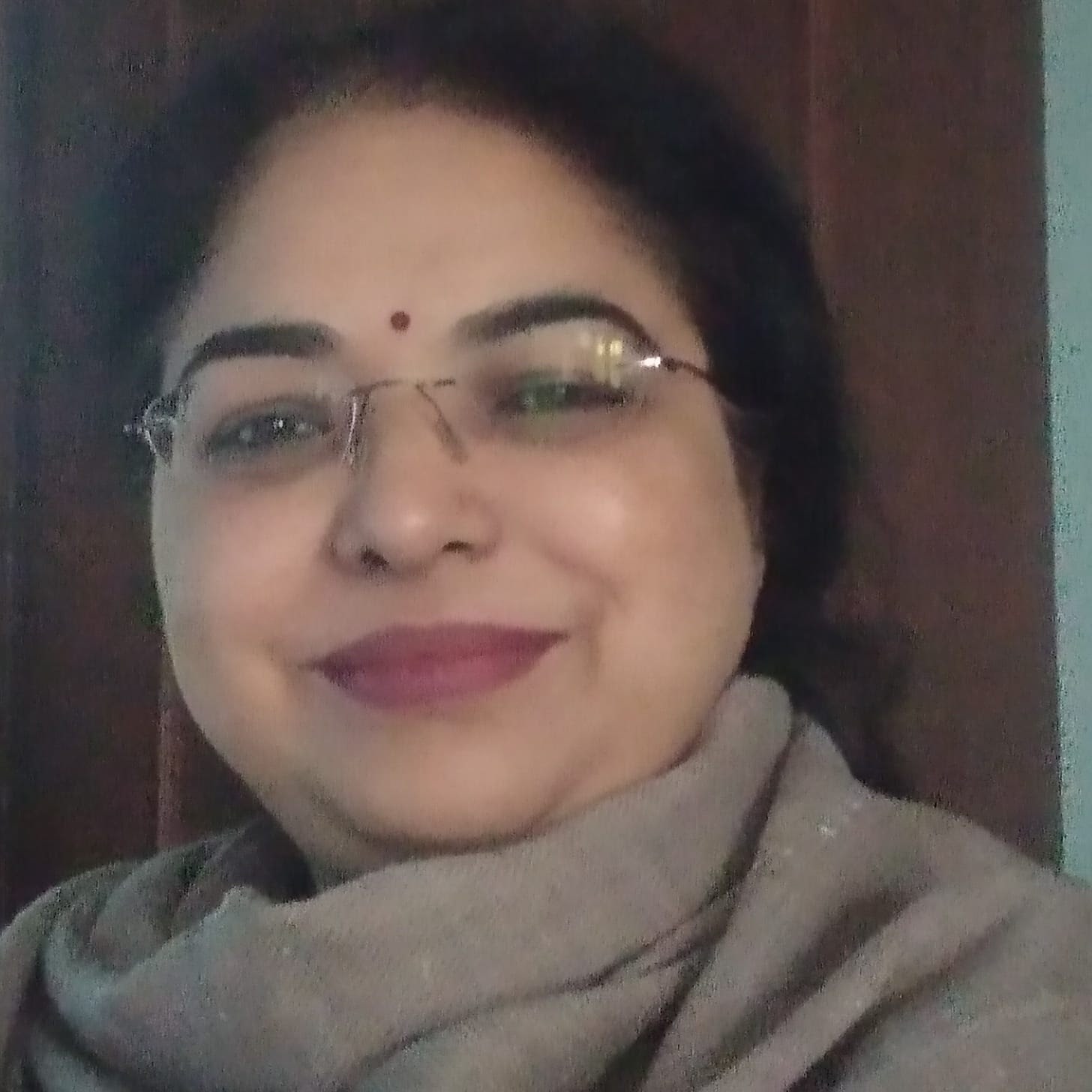
Dr. Swayamprabha Das
Lead- Policy, Research and Planning & Associate Vice President, Development Alternatives Group
Dr. Swayamprabha Das, Lead- Policy, Research and Planning & Associate Vice President, Development Alternatives Group, holds a Doctorate from Jawaharlal Nehru University, in international relations (environment policy and diplomacy). She is a Hubert Humphrey Fellow with a NRM focus, with University of California, Davis, CA. Dr Das has a progressive work experience of 24 years in the development and environment sector, with a focus on policy, programme management and communications. Her area of work covers natural resource management, climate change, human development, skilling development (women), and gender. She recently completed her assignment with the G20 Secretariat, supporting the Indian Presidency on Environment and Climate Sustainability. She is the Regional Deputy Vice Chair (South & East Asia), IUCN Commission on Environmental Economic and Social policy (CEESP), and member of IUCN Commissions on Ecosystem Management (CEM) and Education and Communication (CEC). Swayam is also a Climate Reality Fellow from India.
View DetailDr. Swayamprabha Das, Lead- Policy, Research and Planning & Associate Vice President, Development Alternatives Group, holds a Doctorate from Jawaharlal Nehru University, in international relations (environment policy and diplomacy). She is a Hubert Humphrey Fellow with a NRM focus, with University of California, Davis, CA.
Dr Das has a progressive work experience of 24 years in the development and environment sector, with a focus on policy, programme management and communications. Her area of work covers natural resource management, climate change, human development, skilling development (women), and gender. She recently completed her assignment with the G20 Secretariat, supporting the Indian Presidency on Environment and Climate Sustainability.
She is the Regional Deputy Vice Chair (South & East Asia), IUCN Commission on Environmental Economic and Social policy (CEESP), and member of IUCN Commissions on Ecosystem Management (CEM) and Education and Communication (CEC). Swayam is also a Climate Reality Fellow from India.
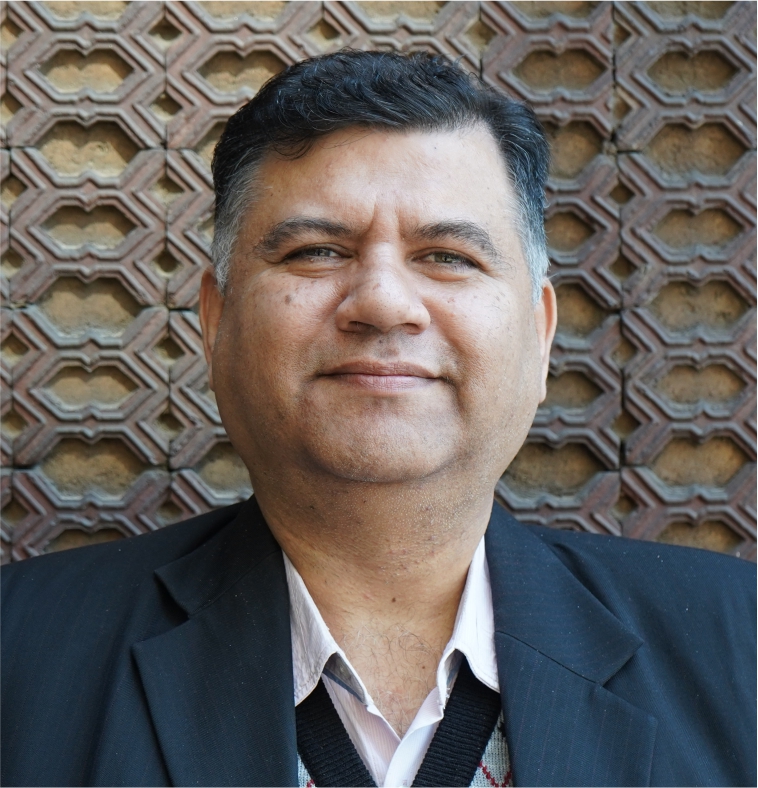
Prince Soni
Advisor-Director, Finance and Strategic Initiatives, Development Alternatives Group
Prince Soni is a seasoned finance professional with over 25 years of experience and served as CFO and expert in Business Transformation, Fund Raising, Indian Taxation, risk management, and corporate finance etc. He has held key leadership roles at organisations such as Motherson Group, Whirlpool, Goodyear, and Thomas Cook. His expertise spans mergers & acquisitions, financial restructuring, CSR impact assessment, and compliance with global financial regulations. A Chartered Accountant, Law Graduate, Forensic & Fraud Detection and Insolvency Professional, he has been instrumental in strategic financial planning, policy governance, and corporate advisory. With a strong background in cross-functional leadership, he specialises in driving financial transformation, ensuring regulatory compliance, and fostering sustainable business growth. As Advisor-Director, Finance and Strategic Initiatives at Development Alternatives Group, he oversees financial compliance, accounting, and system automation, continuously improving processes to enhance efficiency. He also leads corporate collaborations for funding opportunities, develops incubation models for social enterprises, and facilitates their transition into the commercial sector. Additionally, he is spearheading initiatives related to the Social Stock Exchange, aligning financial strategy with Development Alternatives’ mission for sustainable impact.
View DetailPrince Soni is a seasoned finance professional with over 25 years of experience and served as CFO and expert in Business Transformation, Fund Raising, Indian Taxation, risk management, and corporate finance etc. He has held key leadership roles at organisations such as Motherson Group, Whirlpool, Goodyear, and Thomas Cook. His expertise spans mergers & acquisitions, financial restructuring, CSR impact assessment, and compliance with global financial regulations. A Chartered Accountant, Law Graduate, Forensic & Fraud Detection and Insolvency Professional, he has been instrumental in strategic financial planning, policy governance, and corporate advisory. With a strong background in cross-functional leadership, he specialises in driving financial transformation, ensuring regulatory compliance, and fostering sustainable business growth.
As Advisor-Director, Finance and Strategic Initiatives at Development Alternatives Group, he oversees financial compliance, accounting, and system automation, continuously improving processes to enhance efficiency. He also leads corporate collaborations for funding opportunities, develops incubation models for social enterprises, and facilitates their transition into the commercial sector. Additionally, he is spearheading initiatives related to the Social Stock Exchange, aligning financial strategy with Development Alternatives’ mission for sustainable impact.
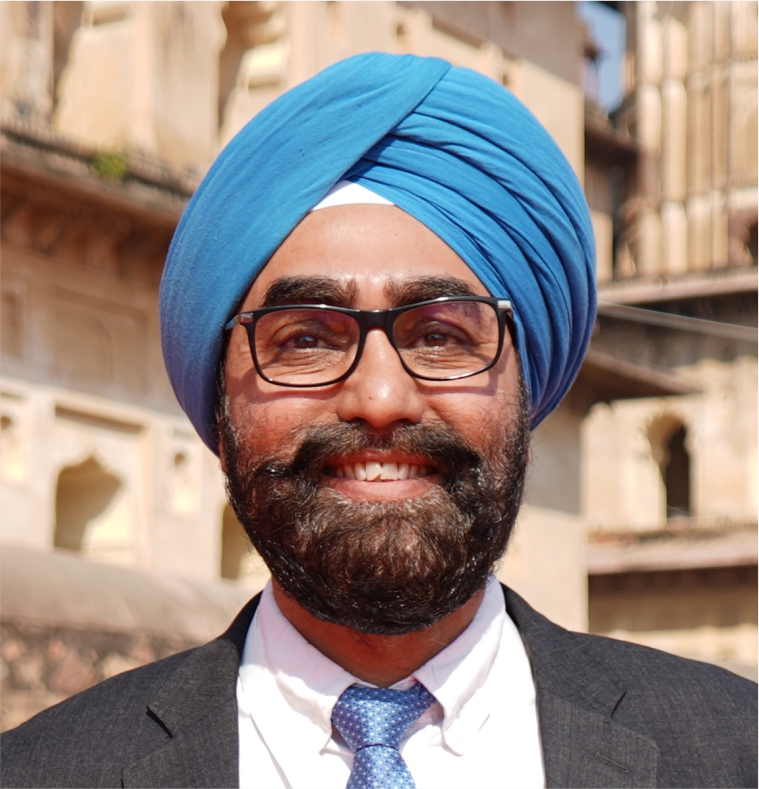
Navniit Siingh Chatwal
Associate Vice President and Regional Director – Bundelkhand, Development Alternatives Group
Mr. Navniit Siingh Chatwal has 3 decades of experience in Startups, Entrepreneurship, Skill Development, Higher Education Management, Social Development and Strategy Consulting, working with organisations and Institutions of repute in India and in Canada. He has consulted many Startups and Small & Medium Enterprises (SME) on issues related to HR Strategy, Change Management, Process reengineering and Capacity building to help them grow. Currently he is working with Development Alternatives as Associate Vice President and Regional Director – Bundelkhand, a part of DA Leadership Team and managing the operations of its Campus at TARAgram Orchha MP, which includes overseeing TARA Paper Unit, TARA Nirman Kendra and various social development projects being implemented from there. In his previous notable assignments, he has worked as the Executive Director at JLU Foundation for Incubation & Entrepreneurship and also worked as Executive Director at CEDMAP (Centre for Entrepreneurship Development Madhya Pradesh – a MP State Government promoted Entrepreneurship Development Institute for the state of MP & CG. He has been instrumental in initiating and establishing an Incubation Centre on Food Processing at CEDMAP. He is a Mechanical Engineer from Maulana Azad National Institute of Management (MANIT) Bhopal, an MBA graduate in Strategic Management from Schulich School of Business, Toronto Canada and certified in Global Operations from IIM Ahmedabad. He is also globally certified as Supply Chain Professional (CSCP) and Oracle Certified Professional (OCP). He is an avid reader and loves to contribute to the society on social and environmental causes.
View DetailMr. Navniit Siingh Chatwal has 3 decades of experience in Startups, Entrepreneurship, Skill Development, Higher Education Management, Social Development and Strategy Consulting, working with organisations and Institutions of repute in India and in Canada. He has consulted many Startups and Small & Medium Enterprises (SME) on issues related to HR Strategy, Change Management, Process reengineering and Capacity building to help them grow.
Currently he is working with Development Alternatives as Associate Vice President and Regional Director – Bundelkhand, a part of DA Leadership Team and managing the operations of its Campus at TARAgram Orchha MP, which includes overseeing TARA Paper Unit, TARA Nirman Kendra and various social development projects being implemented from there.
In his previous notable assignments, he has worked as the Executive Director at JLU Foundation for Incubation & Entrepreneurship and also worked as Executive Director at CEDMAP (Centre for Entrepreneurship Development Madhya Pradesh – a MP State Government promoted Entrepreneurship Development Institute for the state of MP & CG. He has been instrumental in initiating and establishing an Incubation Centre on Food Processing at CEDMAP.
He is a Mechanical Engineer from Maulana Azad National Institute of Management (MANIT) Bhopal, an MBA graduate in Strategic Management from Schulich School of Business, Toronto Canada and certified in Global Operations from IIM Ahmedabad.
He is also globally certified as Supply Chain Professional (CSCP) and Oracle Certified Professional (OCP).
He is an avid reader and loves to contribute to the society on social and environmental causes.
Compliance
Development Alternatives was set up in 1982. The Society for Development Alternatives is registered as a not-for-profit society under the Society Registration Act. XXI of 1860 (Reg. No. 12964). Also, it is registered under the Foreign Contribution (Regulation) Act, 2010 (FCRA Reg. No. 231650202).






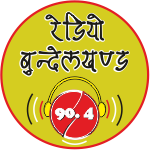 Live Radio
Live Radio